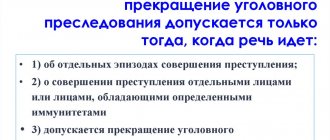Searching for the debtor's property in enforcement proceedings is a very effective way to identify the material assets of the defaulter and repay the existing debt. What this procedure is and how it is carried out will be discussed today.
Search for the debtor's property is a set of measures carried out by an official to locate and identify the debtor's property. In practice, these measures are often identified with a request for all necessary information about the financial situation of the defaulter.
As part of the search for the debtor's property, the following information is analyzed, collected and provided to the collector:
- about the debtor’s possession of a vehicle and its model;
- about the debtor’s real estate, its type, address and number of objects;
- about the debtor’s bank accounts, the name of the bank and the amount of funds;
- about the debtor’s ownership of shares, shares of various companies and the status of the owner of the enterprise.
Thus, putting a person on the wanted list can be called forcing the debtor to fulfill the requirements.
Actions to search for the debtor's property can be carried out by a bailiff personally (without outside assistance) or with the involvement of internal affairs bodies. The basis for starting the search is a resolution approved by the senior bailiff.
Important:
After announcing a search, the bailiff has the right to request operational reference and search information from data banks. In addition, the bailiff has the right to process all personal data, which may contain the information he needs.
The implementation of the approved procedures is related to the procedure for carrying out the actions of bailiffs in relation to the debtor and his property and consists of:
- organizing and carrying out search activities;
- ensuring the costs of carrying out the investigation;
- conducting search cases;
- exercising control functions over the implementation of powers in the search process;
- appealing against actions or inaction of officials during the implementation of the state search function.
Important:
At the legislative level, the responsibility of officials participating in the performance of the state search function is determined.
Reasons
The official has the right to announce a search for the property of the defaulter if there is no information about its location.
The search procedure can be started either on the executor’s own initiative or on the basis of a written request from the claimant. The main condition is that the amount of debt must be over 10 thousand rubles.
The basis for declaring a wanted person is a resolution approved by the senior bailiff.
The search for the property of the defaulter can be announced at the following places:
- stay of the debtor;
- residence of the debtor;
- location of the debtor's property;
- residence of the claimant.
Procedure
According to current legislation, the bailiff is obliged, within three days from the receipt of the claimant’s application or the discovery of grounds for starting a search, to issue a resolution to search for the debtor’s property. This document must contain clear instructions on enforcement actions. That is why measures to enforce the requirements of the executive document are carried out on the basis of the issued resolution.
Important:
The search order must be approved either by the senior bailiff himself or his deputy, after which the document is subject to immediate execution.
Each of the parties to the enforcement proceedings must receive a copy of the resolution to begin the search for property or to refuse to conduct it. If there is no reliable information about the whereabouts of the debtor, a copy of the document is sent to the last known address.
Required documents
To begin enforcement proceedings on the search, the following documents are required:
- a copy of the resolution on enforcement proceedings;
- resolution and its copy on the establishment of a search case;
- inventory of documents of the search case;
- copy of the writ of execution;
- a copy of the claimant's application for the search;
- certificates prepared by a bailiff and reflecting information: on the execution of actions to establish the location of the debtor’s property;
- about the impossibility of establishing the location of property without investigative measures;
- on the plan of activities related to the search for property;
- on the results of individual search activities;
- information from government agencies about the debtor’s property status.
Search case for enforcement proceedings
In accordance with Russian legislation, a search case must be opened no later than the day following the date of the decision to open a search case.
The following can become familiar with the case materials:
- head and deputy head of the territorial division of the FSSP;
- senior bailiff of the department in which this search case was opened;
- persons carrying out inspections of the activities of a structural unit in the direction of the search.
The bailiff responsible for the execution of the proceedings or the claimant must be provided with a certificate of the results of the search no later than the day following the day of receipt of the bailiff's request or the claimant's application. The completed search case is submitted to the archives in accordance with the requirements of the FSSP Office Management Instructions. The storage period for discontinued search cases is five years.
Procedure for discovering the debtor's property
When the debtor's property is discovered, the bailiff carries out enforcement actions and measures to enforce the requirements of the writ of execution at the place where the property was discovered. If necessary, the debtor is transferred to the place closest to the FSSP unit for the purpose of applying enforcement measures or taking enforcement actions. After the necessary actions are completed by the bailiff who carried out the search, the decisions (acts) are transferred to the bailiff who initiated the search activities.
The termination of the search for the debtor's property is carried out on the basis of the issuance of a corresponding resolution by the bailiff associated with the case.
The grounds for terminating search proceedings are:
- establishing the location of property;
- implementation of the search action plan;
- refusal of the claimant to carry out collection activities.
Important:
The decision to terminate the search becomes legally binding after the document is approved by the senior bailiff.
Application to search for the debtor's property: sample
The claimant may initiate a search for the debtor's property independently. To do this, he needs to submit a corresponding application to the bailiff.
Thus, searching for the debtor’s property allows not only to identify the true financial situation of the defaulter, but also to repay the existing debt in a short time.
The bailiff is carrying out enforcement proceedings to collect money from the debtor. The location of the debtor is unknown. Can the bailiff put him on the wanted list?
- Question: No. 1713 dated: 2015-03-26.
On the merits of the question asked, we report the following.
In accordance with Part 1 of Article 65 of Federal Law No. 229-FZ of October 2, 2007 “On Enforcement Proceedings” (hereinafter referred to as the Law on Enforcement Proceedings), the bailiff, during enforcement proceedings, announces an executive search for the debtor and his property.
According to Part 2 of Art. 65 of the Law on Enforcement Proceedings, the search is announced at the place of execution of the enforcement document or at the last known place of residence or place of stay of the debtor, the location of the debtor’s property or the place of residence of the claimant. Declaring a search is the basis for carrying out such a search on the territory of the Russian Federation, as well as in the manner established by international treaties of the Russian Federation on the territories of foreign states.
The order to search for the debtor or his property is issued by the bailiff within three days from the date of receipt of the claimant's application to announce the search or from the date the grounds for declaring the search arise and is approved by the senior bailiff or his deputy.
In accordance with Part 8 of Art. 65 of the Law on Enforcement Proceedings, the search warrant is subject to immediate execution. This resolution entrusts the search process to the bailiff carrying out the search, or to the bailiff in charge of the relevant enforcement proceedings and who in this case exercises all the powers of the bailiff carrying out the search.
Copies of the bailiff's decision on the search are sent to the parties to the enforcement proceedings no later than the day following the day of its issuance. If there is no information about the whereabouts of the debtor, a copy of the order of the bailiff is sent to the last known place of residence or place of stay of the debtor.
Within the meaning of Part 10 of Article 65 of the Law on Enforcement Proceedings during a search, the bailiff carrying out the search has the right to carry out enforcement actions provided for by the Law on Enforcement Proceedings, as well as carry out the following enforcement and investigative actions:
1. request operational reference and search information from data banks and process personal data necessary for the search, including information about persons and their property;
2. check the identification documents of a citizen if there are grounds to believe that he and (or) his property are wanted;
3. carry out personal identification, interview citizens, make inquiries, study documents, inspect property, inspect premises, buildings, structures, areas of the area occupied by or belonging to the wanted persons, as well as vehicles belonging to these persons.
According to Part 13 of Art. 65 of the Law on Enforcement Proceedings, when a wanted debtor-citizen is discovered, enforcement actions are carried out, and enforcement measures are applied at the place of his discovery. If necessary, to carry out enforcement actions or apply enforcement measures, the debtor-citizen may be transferred to the bailiff unit closest to the place of detection.
Thus, the current legislation on enforcement proceedings provides for a procedure for searching for the debtor.
Determining the location of the defaulter in respect of whom a court order has been issued to collect the amount of debt in favor of the plaintiff is a preparatory measure initiated during enforcement proceedings.
These actions must be carried out by bailiffs on their own initiative or upon an application from an interested person.
After the court makes a decision in favor of the plaintiff, enforcement proceedings must be initiated. For this purpose, the interested party receives a writ of execution and is sent to the FSSP office at the defendant’s registered address or the location of his property (for example, an apartment).
The writ of execution can be sent to the necessary authority by the court.
FSSP employees notify the debtor of the need to repay the obligation within 5 days from the date of receipt of the letter. After missing the deadline for voluntary payment of the debt, bailiffs have the right to resort to compulsory measures to collect finances.
To execute a court ruling that has entered into legal force, FSSP employees can use any legal measures. One of the activities is collecting information about the defaulter (about his place of registration, actual residence address, place of employment, availability of bank accounts, etc.).
Grounds for searching a citizen
In order to execute a court decision and collect the required amount of money from the defendant in favor of the plaintiff, it is necessary to determine the location of the citizen. Initiation of executive-search measures must be carried out if there are substantial grounds.
The law provides the following reasons for putting a person on the wanted list:
- evasion of child support (availability of arrears in child support payments);
- violation of the interests of the country, its individual subjects or municipalities;
- the need to pay a fine or serve a sentence for committing a crime;
- being a citizen at compulsory work;
- the need to compensate for damage caused to a citizen’s health;
- fulfillment of non-property or property claims of an interested person.
Putting a child support debtor on the wanted list by bailiffs is a common occurrence in legal practice. The event can be started at the initiative of the FSSP employees themselves.
It is worth noting that the search for the defaulter’s property is carried out only if the value of the claims against the debtor is more than 10 thousand rubles.
The procedure for conducting an executive search
The grounds for introducing a search will appear when the bailiff initiates proceedings and carries out initial actions. To initiate a case, the bailiff needs to receive the claimant’s application, and then the writ of execution itself. Also, the claimant may ask the court to transfer documents to the FSSP after they enter into force.
Initiation of proceedings
The FSSP employee is obliged to make a decision on the documents received from the claimant within 3 days. If there are no grounds for opening proceedings, the applicant is informed about this. Naturally, in this case the debtor is not in danger of being wanted.
If the documents comply with the norms of Law No. 229-FZ, then the bailiff is obliged to:
- initiate enforcement proceedings;
- draw up a resolution, enter information into the Data Bank on the FSSP portal;
- send a copy of the decision to the parties.
At this stage, search activities have not yet been carried out. The general information about the defaulter specified in the creditor’s application and the writ of execution will be included in the resolution by the FSSP employee. The actual location verification and property identification will begin later.
Checking information about the debtor and property
A bailiff can collect debts or fulfill another requirement by a court decision only in interaction with the defendant (debtor). After opening a case, the bailiff carries out the following activities:
- makes a request to the Ministry of Internal Affairs about the place of registration of the defaulter (the request is made at the address indicated in the writ of execution or court order);
- requests information from the Unified State Register of Real Estate, the traffic police database on the presence or absence of real estate and vehicles;
- goes to the place of residence of the defaulter, checks the availability of property, draws up an inventory (act);
- seizes assets and transfers them for safekeeping to the debtor or another person.
At this stage, the bailiff may find out that the defaulter does not actually live at his registered address, and understand that his whereabouts are unknown. This will be the basis for introducing a search, but not for property, but specifically for the debtor himself, if the actions of the bailiff did not help to find the real address.
A FSSP specialist will search for property in the following cases:
- if there is no information about the whereabouts of the debtor;
- if, as a result of inquiries, during an inspection of a residential or other premises, no assets were found that could be sold;
- if the value of the identified property is not enough to pay off all debts;
- if the bailiff has not discovered the thing or object that he is obliged to seize and transfer to the recoverer by court decision. For example, the debtor goes through the registration database as the owner of a car, but the bailiff cannot find this car.
In practice, the search for property by bailiffs may not be carried out if the debtor has a stable job and a constant source of income from which he can pay off the debt.
It is much easier to seize the property that was immediately found during a home inspection and send documents for retention to work. Since the collector is interested in collecting the debt as quickly as possible, he can demand a search if he has information about other property of the defaulter.
Search warrant
The search for a debtor in enforcement proceedings or his assets can be carried out at the initiative of the FSSP or at the request of a creditor. According to Art. 65 of Law No. 229-FZ, the obligation to initiate search activities arises:
- if the debt exceeds 10 thousand rubles, and this debt is awarded to the state or municipality (for example, these may be administrative fines);
- if we are talking about non-payment of alimony (the amount of the claim in this case does not matter);
- if compensation is sought for damage to life or health, damage from crimes;
- if the debtor was sentenced to compulsory labor or imposed a fine for committing a crime.
If the bailiff does not take the initiative and does not initiate a search for the listed reasons, the collector may demand this. To do this, an application is submitted, which the FSSP considers within 10 days. If the bailiff unreasonably refused to search or ignored the requests of the claimant, you can file a complaint.
The bailiff himself decides to what extent to declare a search. He can search only for the defaulter, or only for his property, or use both options at once. For example, to collect current alimony payments, you need to find the payer and his place of work. If the debtor has no income, information about his accounts and assets is needed to begin repaying the debt.
Ekaterina Uryvaeva
Bankruptcy Lawyer for Individuals
The law lists several situations when the bailiff has the right to start a search:
- if it is impossible to enforce a decision with non-property claims without personal presence (for example, if the defendant must prepare and post a public refutation after a court decision on libel);
- if the debt exceeds 10 thousand rubles, and the claim is of a property nature.
In fact, this allows you to start a search for any requirements if their total amount is above 10 thousand rubles. If the bailiff himself does not decide to start a search, the creditor has the right to submit such an application.
Let us note once again that in these situations the FSSP officer has the right, and not the obligation, to conduct a search. If the bailiff does not see the need for this, he may refuse the claimant. An appeal will help to finally resolve this issue.
The search for debtors by bailiffs is announced by decree. It states:
- general information about the defaulter known at the time the resolution was issued;
- production number, the essence of the claimant’s demands;
- the period for which the search is announced;
- list of events (later it may be supplemented);
- a list of instructions that will be sent to the services of the FSSP and the Ministry of Internal Affairs.
The resolution is approved by the senior bailiff of the FSSP department. After this, a copy of the document is sent to the parties. If the real location of the defaulter is unknown, the document will be sent to the last known address.
Carrying out search activities
Search activities can be carried out by the bailiff himself, as well as by employees of other departments, if they are given such instructions. For example, according to a search warrant, bailiffs can give instructions to specialists from the FSSP and the Ministry of Internal Affairs in other regions other than where the case is taking place.
To search for property, the following activities can be carried out:
- requests to any public and private structures, databases;
- surveys of persons who may have information about the defaulter and his property;
- working with personal data;
- checking citizens' identity documents;
- inquiry;
- surveys of sites, real estate objects;
- inspection of property (real estate, transport, other movable property);
- personal identification;
- operational-search actions with the involvement of employees of the Ministry of Internal Affairs.
The list of actions that will be carried out to find the defaulter depends on the conscientiousness of the bailiff. Therefore, the claimant has the right to get acquainted with the progress of the proceedings and file complaints if the FSSP is inactive.
The law allows the claimant to submit documents and information that may help in the search. This may also be materials obtained during private detective activities. If the bailiff refuses to accept documents and information without substantiating the reasons, the claimant has the right to file a complaint.
What threatens the debtor
If the debtor deliberately tries to escape and hides property, he may face criminal or administrative liability.
For example, for deliberate evasion of debt repayment, a punishment may be imposed under Art. 177 of the Criminal Code of the Russian Federation. In this case, the amount of debt must exceed 2 million 250 thousand rubles.
For evasion of alimony payments, liability arises according to special provisions of the law. If there is a delay of at least 2 months, the violator will first be held accountable under the Code of Administrative Offenses of the Russian Federation. If he continues to evade payments, a criminal case may be opened in another 2 months.
If the defaulter learned about the claims of the FSSP and the creditor only during the search, he can avoid liability. To do this, you must provide information about your address and other data. After this, the bailiff will begin enforcement actions as usual.
What happens if or when the property is found?
As soon as the property is identified, the bailiff will be able to seize it and begin selling it. The search materials must clearly confirm that the found things, objects and objects belong to the defaulter personally. Seizure can be placed on any assets.
Sales will be carried out through a specialized organization or at auction. In Art. 446 of the Code of Civil Procedure of the Russian Federation there is a list of objects and things that cannot be sold. If an FSSP employee includes assets from this list in the inventory for sale, the debtor will be able to file a complaint.
After the sale, the proceeds will be used to pay the claimant and repay the enforcement fee. The debtor also pays the costs incurred during the search.
Remember that it is very dangerous to keep funds in bank accounts if enforcement proceedings have been initiated against you. There are no banks in Russia that ignore requests from bailiffs. Keep in mind the fact that creditors may also have information about where you keep your money. After all, you yourself often inform about the presence of accounts and deposits in banks in your loan application.
What threatens the debtor if the bailiffs do not find the property?
If the debtor has nothing to pay, and the search for property does not yield results, the following consequences occur:
- the bailiff has the right to extend search activities if there is such a need;
- if execution is impossible due to lack of property, the FSSP officer will complete the proceedings and send a resolution to the parties;
- If the alimony defaulter is not found within a year, the bailiff is obliged to notify the collector of the possibility of recognizing the debtor as missing (this gives the right to receive a survivor's pension).
If the defaulter's financial situation subsequently changes, the proceedings may be resumed. This can be done by the bailiff himself, or the claimant has the right to submit an application.
Termination of proceedings due to lack of property may be beneficial for the debtor. He will be able to apply to the MFC and go through out-of-court bankruptcy. You can check the fact that the case was completed due to the lack of property from the resolution, upon request to the FSSP, through the Data Bank on the bailiffs website. You can learn more about bankruptcy from our lawyers.
How do bailiffs search for debtors?
The search for a citizen begins with an application drawn up by the claimant. The FSSP has the right to independently take the initiative. First of all, a plan for upcoming events is drawn up. The search case must be registered in the appropriate accounting book of a certain unit.
After this, bailiffs send requests to various authorities to obtain personal information about the defendant:
- place of his official residence;
- previous registration address;
- place of residence of loved ones (spouse, child, parents);
- expected location address;
- official employment;
- location of the property owned.
Employees of other authorities (for example, the Department of Internal Affairs) may be involved in the search for the debtor by the bailiff service.
If the defaulter is located in a territory that is not covered by the powers of a certain FSSP TO, within 3 days information on the case is transferred to the subordinate department.
How to submit an application to a bailiff to search for a debtor?
The law allows for the initiation of search activities at any stage of enforcement proceedings initiated by the FSSP. In addition to determining the location of the defendant himself, authorized persons can simultaneously search for real estate and movable property belonging to him.
The application submitted by the claimant to the bailiff service must contain:
- name and address of the FSSP;
- personal data of the claimant and the defendant;
- information about the case (details of the court decision, number of enforcement proceedings);
- grounds for debt collection;
- a request to search for the defaulter;
- information about the possible location of the defendant;
- date of document execution;
- claimant's signature.
You can draw up the text of an application to search for a debtor to bailiffs using the information presented on the website, or order its execution from a lawyer. It is worth noting that specialist services are provided on a paid basis.
What is the essence of the search?
The purpose of the FSSP proceedings is to force the defendant (debtor) to comply with the court decision in order to pay off the debtor. If the location of the defaulter is known, the bailiffs can seize his assets and accounts, send documents to work, and begin selling the property. If there is no such data, the FSSP officer will announce an executive search.
The general rules for conducting a search for the debtor’s property in enforcement proceedings are regulated by Article 65 of Law No. 229-FZ:
- a search can only be initiated following initiated proceedings
- until the claimant submits documents to the FSSP, the bailiff has no right to use search actions; - the law lists situations when a representative of the FSSP has the right or obligation to begin search activities
- if the bailiff does not try to find the debtor, the debtor may demand this; - before the introduction of the search or during its conduct, the collector can submit to the FSSP information about the location of the defaulter and his assets
- the bailiff is obliged to double-check all the data and take them into account when conducting the case.
If the debtor does not try to escape, but his property is not found, the bailiffs can still introduce a search procedure. Many defaulters try to hide their belongings or valuables, for which they transfer them for temporary storage to other persons. This is more difficult to do with real estate and vehicles, but they are not always listed in federal registers. Therefore, search activities are a normal and legal practice aimed at protecting debt collectors.
Ekaterina Uryvaeva
Bankruptcy Lawyer for Individuals
Who can put out a search?
Only bailiffs have such powers. Collectors can collect information about the defaulter and request data about his assets from open sources. But this is not an official procedure for enforcement proceedings.
The identification of property within the framework of bankruptcy can be carried out by creditors and the administrator. But their powers are not as significant as those of bailiffs in enforcement proceedings. For example, a manager or creditor cannot send instructions to divisions of the FSSP or the Ministry of Internal Affairs of other regions so that their employees inspect the property and determine its real owner.
Only bailiffs can conduct a search during enforcement proceedings.
They are vested with the maximum possible powers, from requesting information and making inquiries to checking passports and conducting operational investigative actions. Collectors, creditors and the bankruptcy trustee can collect information about the debtor, but do not have the right to conduct a search.
Consideration of an application to the FSSP
After registering the submitted application from the claimant, the authorized bailiff must prepare the appropriate decision:
- about putting the defaulter on the wanted list (the official is given up to 3 days to make this decision);
- about refusal to satisfy the applicant’s demands (the response must be prepared within 24 hours).
If you do not agree with the decision made by the FSSP, appeal it to a higher authority. In the text of the complaint, indicate why you believe that your interests and rights were violated by the bailiff’s conclusion.
The search case must be opened within 24 hours from the date of the decision to take enforcement-search measures.
Article 210 of the Code of Criminal Procedure of the Russian Federation. Search for a suspect, accused (current edition)
1. Before suspending the case, the investigator (inquiry officer) carries out search investigative actions (search to identify hiding persons; seizure of postal and telegraphic items addressed to the connections of the accused; monitoring and recording of negotiations; interrogation of neighbors, colleagues of the accused) or other activities, for example, directing requests to various institutions. After the case is suspended, the investigator has the right only to request and accept the presented objects and documents. See comment. to Art. 209. If, despite the measures taken, the whereabouts of the accused (suspect) could not be established, then a search order is given to the investigative authorities. The search for the accused is one of the tasks of the police (Articles 8, 9 of the Federal Law “On the Police”), for the implementation of which operational search activities can be carried out. For an effective search, it is first necessary to identify detailed information about the identity of the accused.
———————————
See: Instructions on the organization and tactics of investigative work of internal affairs bodies. Appendix No. 1 to Order of the Ministry of Internal Affairs of Russia dated May 5, 1993 No. 213 // Questions of crime investigation. M., 1996. S. 653 - 654.
2. The types of search are determined by scale: local, federal, interstate, international. Departmental regulations establish the conditions for the investigative body to announce a federal wanted list (as a rule, for serious crimes after 2-6 months of an unsuccessful local search). The interstate search is carried out within the CIS member states, does not replace the international search and can be carried out in parallel with it. An international search is carried out on the territory of member states of the International Criminal Police Organization (Interpol) through the mediation of this organization. Putting on the international wanted list is regulated by by-laws (Order of the Ministry of Internal Affairs of Russia N 786, Ministry of Justice of Russia N 310, FSB of Russia N 470, FSO of Russia N 454, FSKN of Russia N 333, FCS of Russia N 971 dated October 6, 2006 “On approval of the Instructions for organizing information support for cooperation through Interpol”). The basis for declaring an international wanted list is reliable information about the wanted person’s departure (intention to leave) outside the Russian Federation, about the presence of connections outside the Russian Federation. To put on the international wanted list, the following conditions must be met:
- the wanted person has the status of an accused (see Article 47 of the Code of Criminal Procedure);
- the accused is put on the federal wanted list (or is simultaneously put on the federal wanted list);
- the wanted person is accused of committing one or more crimes of moderate gravity, serious or especially serious, which are not of a political, military, religious or racial nature.
An international search is declared by a resolution of the body carrying out the operational search, on the basis of a criminal procedural decision on the search (a decision made in accordance with Article 210 of the Code of Criminal Procedure, or an order of the prosecutor given on behalf of a judge in the case provided for in Part 2 of Article 238 of the Code of Criminal Procedure). The decision to declare an international search is issued by an employee of the search unit, approved by the head or deputy head of this unit, agreed upon with the head of the relevant body carrying out the operational investigation, and certified with a seal. This resolution with the necessary documents is sent to the Interpol NCB. If the judge decides to refuse to satisfy the petition to place the accused, in respect of whom a decision has been placed on the international wanted list, on a preventive measure in the form of detention, then this decision will be canceled and in the future only a check can be carried out according to Interpol records. Simultaneously with the issuance of a resolution to declare an accused person put on the international wanted list by the body that issued the corresponding resolution, a request is sent to the Border Control Department of the FSB of the Russian Federation to place wanted persons under control at checkpoints across the state border of the Russian Federation.
4. Part 3 of the commented article as amended by the Law of July 4, 2003 marked the beginning of the formation of a new criminal procedural institution - the detention of the accused, which, within the meaning of the law, should be carried out by analogy with the detention of a suspect for up to 48 hours. However, the detention of the accused has special grounds, goals, motives and conditions. See comment about this. to Art. 91. The purpose of the new institution is to ensure the “prohibition of arrest in absentia”. See comment. to part 4 - 5 tbsp. 108. If the wanted person is discovered, he may be detained, after which the proceedings must be resumed immediately.
Comment source:
Ed. A.V. Smirnova “COMMENTARY ON THE CRIMINAL PROCEDURE CODE OF THE RUSSIAN FEDERATION” (ARTICLE BY ARTICLE), 5th edition
SMIRNOV A.V., KALINOVSKY K.B., 2009
How are search activities terminated?
To suspend or terminate the search for the defaulter, it is necessary to issue an appropriate resolution approved by the senior bailiff. The results of the event must be reflected in a special certificate.
The grounds for stopping the search are:
- determining the location of the debtor or his property;
- expiration of the deadlines specified in the resolution;
- completion of enforcement proceedings;
- obstruction of the search for the defaulter by the creditor.
The search operation is carried out within two months, but if necessary, this period is extended for an additional 60 days. For this purpose, an appropriate resolution must be passed.








